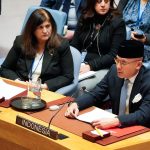Indonesia, S Africa collaborate to write book on Islamic figures

The book, which is the result of a collaboration between the Indonesian Embassy in Pretoria and South African and Indonesian writers, examines the role and implications of two prominent Indonesian figures, namely Sheikh Yusuf Al-Makassari and Imam Abdullah Tidore (Tuan Guru), in the dynamics of South African society.
Bogor, W Java (Indonesia Window) – The Embassy of the Republic of Indonesia in Pretoria, South Africa, in collaboration with a South African Islamic organization Awqaf SA held a book launch entitled ‘Evaluating Sheikh Yusuf Al-Makassari and Imam Abdullah Tidore’s Ideational Teachings: Reinforcing the Indonesia-South Africa Relations’ on Saturday (July 23).
Watched virtually by viewers in Indonesia, the event was held on a hybrid manner in three different cities, namely Johannesburg, Durban and Cape Town and, according to a written statement from the Indonesian Embassy in Pretoria received here on Tuesday.
The book, which is the result of a collaboration between the Indonesian Embassy in Pretoria and writers from South Africa and Indonesia, examines the roles and implications of two prominent Indonesian figures, namely Sheikh Yusuf Al-Makassari and Imam Abdullah Tidore (Tuan Guru) in the dynamics of South African society, especially from the aspect of social, cultural and religious practices.
In his remarks at the launch of the book, the Indonesian Ad Interim Charge d’Affaires in Pretoria, Victor J. Sambuaga, emphasized the importance of the role of non-government actors in establishing relations between the countries through people-to-people contact.
The existence of Sheikh Yusuf and Tuan Guru proved this in the dynamics of society in South Africa.
“The role of non-state actors should always be developed by Indonesia and South Africa. The government, in this case, the Indonesian Embassy in Pretoria, will always be present to bridge the relationship between communities and maintain it well,” Victor added.
This literary work explores how the teachings of the two Islamic figures affect Indonesia-South Africa relations in the modern era.
The cross-national book launch presented a number of speakers from both countries, including Indonesian Ambassador to South Africa Salman Al Farisi, and Acting Deputy Director General for Asia and Middle East at the Ministry of Foreign Affairs of South Africa Ntombizodwa Msutukazi Lallie.
Sheikh Yusuf
Sheikh Yusuf Al-Makassari Tajul Khalwatiy was a great scholar, guardian and fighter who opposed colonialism in Indonesia.
The name Al-Makassari refers to his birthplace in Makassar (South Sulawesi province) on the 8th of Shawwal 1036 Hijri or July 3, 1626. Meanwhile, the title of sheikh and Tajul Khalwatiy indicates that he was a murshid (supervisor) of the Khalwatiyah order who attained the degree of sufi.
Sheikh Yusuf is a close relative of the King of Gowa and was addressed in Makassarese as Tuanta Salamaka.
In 1684 he was exiled by the Dutch colonial government to Ceylon (Sri Lanka), then moved to Cape Town in 1694 until he passed away on May 23, 1699 and was buried in this port city.
Tuan Guru Abdullah Tidore
South African journalist Shafiq Morton, who wrote the book ‘From the Spice Islands to Cape Town: The Life and Times of Tuan Guru’, called Tuan Guru Abdullah Tidore a figure of Indonesian cleric who preached Islam in South Africa.
Tuan Guru Imam Abdullah Qadhi Abdussalam was born in Tidore (now located in North Maluku province) in 1712, and passed away in Cape Town in 1807 at the age of 95 years.
The Dutch colonial government exiled Tuan Guru to Cape Town on the VOC ship, Zeepard, in 1780 when he was 68 years old. The exile was aimed at hindering his interaction with Britain, the mortal enemy of the Dutch in the colonial era.
In his exile, Tuan Guru founded the first madrasa (Islamic school) in South Africa in 1793, and not long after, built the first mosque in South Africa called Masjid ul-Awwal.
Tuan Guru, who is a memorizer of the Quran, rewrote this Holy Book from his memory while being held in prison on Robben Island.
This great scholar also wrote a 613-page work entitled Ma’rifat wal Iman wal Islam or the Knowledge of Faith and Religion, which became a guide book for Muslims in Cape Town to study Islam, making Tuan Guru highly respected in South Africa.
Reporting by Indonesia Window with enrichment from various sources
.jpg)








